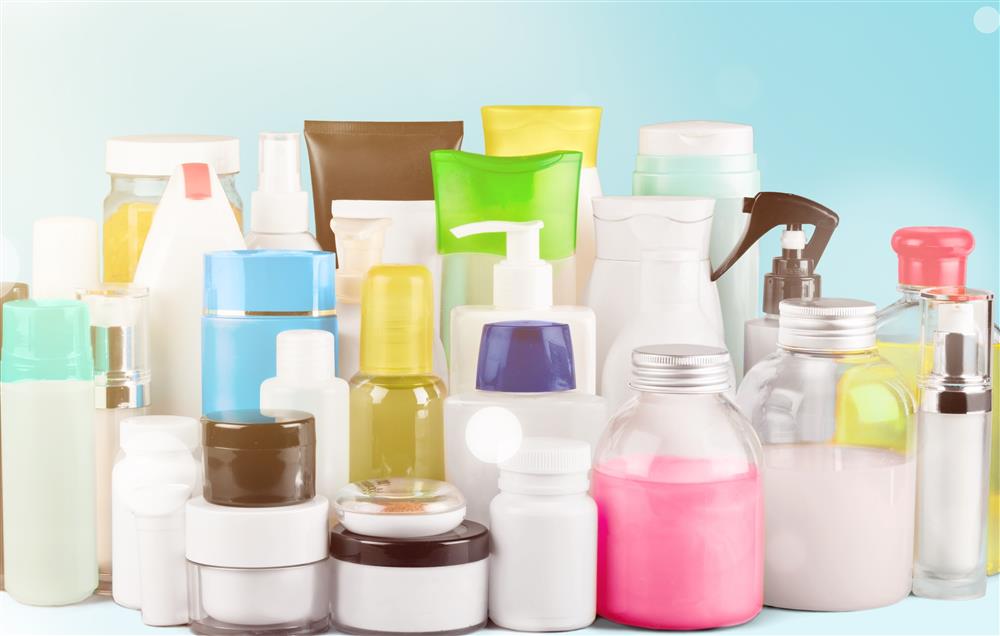Materials matter in the packaging world. Glass and plastic offer several benefits for product packaging, but there are a variety of factors that can impact whether plastic bottles or glass bottles are right for your particular situation. Here are seven issues to consider if you’re trying to decide whether plastic or glass is right for your retail, commercial or industrial bottles.
Product Compatibility
The most important factor of all is to make sure that either glass or plastic is compatible with your product. Mismatched materials and products can lead to faulty containers, which makes compatibility the first concern to address when deciding between plastic or glass bottles.
Certain products can contain chemicals or other substances that may weaken or even dissolve certain materials. Glass’ general inertness and impermeability make it an attractive option for sensitive products, along with its ability to not warp under higher temperatures. However, plastic offers durability and ease of use, which can be much more important if you’re not concerned about a product’s interaction with that material.

Shelf Life
While it’s less problematic than a faulty container, you should also weigh the impact of plastic and glass can have on the shelf life of your product. Certain goods may lose effectiveness over time depending on your material of choice.
Food products are a great example of this scenario. Somebody looking to package spices can opt for a plastic container, but those items will likely have a longer shelf life in a glass container. It’s important to weigh your expectations for the product and choose a material that is best suited for your shelf life expectations.
Shipping
If you’re concerned about the potential for damaged goods, you’ll want to consider the way you ship your products. A distribution center that puts everything on pallets should keep your products reasonably safe. However, shipping through carriers like Amazon or UPS can lead to a higher degree of damaged goods, especially if you’re shipping glass containers. If you’re concerned about shattered glass, you may want to opt for plastic containers.
The decision between glass and plastic can also have major freight implications. Simply put, glass is heavier than plastic. There’s a tremendous weight difference between a truckload of glass bottles versus a truckload of PET bottles. When carriers quote your shipping based on weight, that material choice can weigh into your decision of which material is right for your containers.
Container Costs
Shipping isn’t the only costs affected by your choice of container material. In general, plastic containers can be cheaper than glass. Not only do glass containers require more energy consumption to heat up glass into new bottles, the mold cost for plastic can be surprisingly low depending on your container. These factors can help you attain lower overall prices for blow molded plastic bottles than for similar glass containers.
Container Design
Glass and plastic have their own positives and negatives when it comes to container design. One advantage of glass is that it looks just like that: glass. Certain plastics can achieve a glass look, but it’s not as sturdy as real glass. Plastic is also limited in terms of bottle shape and design compared to glass. A clear plastic bottle won’t be able to achieve the same sharp edges and crevices as glass, so you won’t be able to mold plastic as crisply as a glass bottle.
While glass may offer more clean edges, plastic makes up for it in terms of flexibility in a durable, cost-effective package. Plastic can be molded in a wide variety of shapes and sizes that may not be as realistic for glass, including adding ergonomic finger holds or other features relatively simply. Plastic can also be less slippery than glass, which can make it appealing from a handling perspective for users.
Closures
Closures play a very important role when producing your containers, so it’s important to think about how your material choice affects them – and vice versa.
Metal closures are a common choice for glass bottles because metal does not expand or contract as much as plastic. Meanwhile, plastic closures are typically better suited for a plastic bottle. Plastic bottles may also need to consider closures with a form of induction seal. If an induction liner isn’t important, they may just go with a regular foam liner. However, induction is used on plastic bottles since the heat allows the seals to melt onto the neck finish create a seal. This process isn’t possible with glass, so you may need to add a shrink wrap over the top of the closure if you require some form of tamper evidence.
Filling and Labeling
The choice between glass and plastic can also impact the way you sort, fill, and label your containers. Glass tends to require more labor and effort than plastic. Since glass is more prone to breaking, these containers are typically packed in pre-sized cases with dividers. This means that glass bottles need to be physically set up and set on a filling line. The process for plastic bottles can be as simple as dumping the containers in a hopper that sorts them.
Some manufacturers may also want to wash out glass bottles before filling them. Even if the bottles come in and meet standards, a prewash can help keep you safe from any stray glass shards or other debris, especially for consumable goods. Finally, there are different types of adhesives that work on glass and other that work on plastic, so make sure you invest in labels that are designed for your specific bottle material.
Invest in the Right Plastic or Glass Bottles for Your Business
When it comes down to it, plastic and glass bottles both offer some notable benefits depending on your needs. If you need help deciding which exact bottles are best for your products, Pipeline Packaging can help.
As a premier packaging distributor, we have the experience it takes to help you identify which containers are best for your products and budget. In addition to providing the right retail, commercial, and industrial packaging products, we also offer a suite of value-added services to improve your key projects.
Ready to find the right plastic or glass bottles for your business? Check out our available packaging products online or contact us today to talk to one of our experts today about your specific needs.


